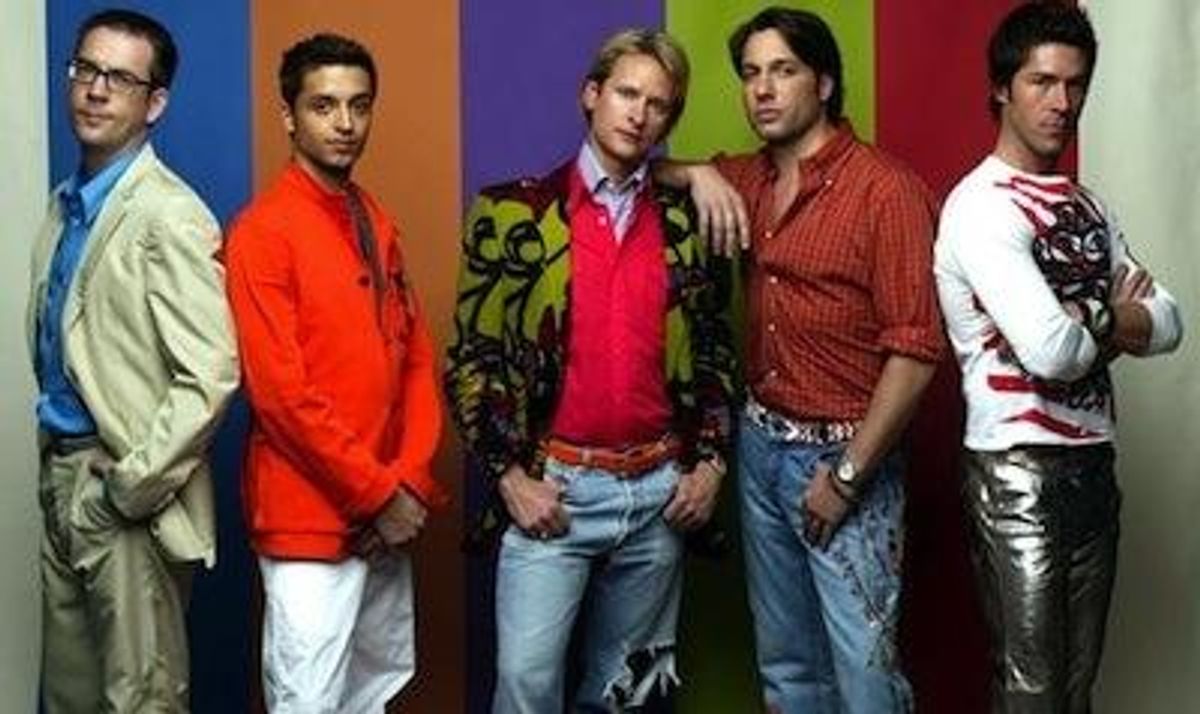
10 years after the groundbreaking TV show premiered, the Fab Five return
September 20 2013 11:25 AM EST
February 05 2015 9:27 PM EST
jerryportwood
By continuing to use our site, you agree to our Private Policy and Terms of Use.

The idea of the metrosexual may have been coined by Mark Simpson in the 90s, but it wasn't until Queer Eye for the Straight Guy premiered in 2003 that the Fab Five sold the idea to Middle America. Now we have a chance to see how it changed them as well.
That's right: food and wine connoisseur Ted Allen, grooming guru Kyan Douglas, design doctor Thom Filicia, fashion savant Carson Kressley and "culture vulture" Jai Rodriguez will be assembled for Queer Eye Reunion: 10 Years Later. Hosted by Andy Cohen, the special will air in October, and promises to reveal "behind-the-scenes secrets" and how the lives of the men have changed after the show ended in 2007. We know America is a far different place in 2013, but after I first read the news, it got me thinking: Was it just gay minstrelsy, or did these "queer eyes" actually shape America in untold ways for the better?
READ: The Ultimate Gay TV Timeline
First, I must fess up: I didn't actually watch the show when it first aired. I had just moved abroad and was trying to learn Spanish by watching dubbed Simpsons reruns. Reading about it online, I wondered what everyone was making such a fuss about. I still remembered when Bravo was the place where I could watch archival footage of Martha Graham productions, obscure indie films, and devour Inside the Actors Studio episodes (when there weren't lame infomercials sucking up airtime to pay for the artsy channel). This was long before Real Housewives and Andy's "reality" aesthetic came to make it a cash cow. So I never experienced those potlucks where people gathered to watch the latest episode of Queer Eye. But I've been going through the old episodes on Netflix (the entire series is available on Instant), watching the seasons unfurl, and have been surprised how wonderfully dated it has become.
Other than The Real World shenanigans, this was the first time gay men saw such bright and shiny representations of themselves on TV. So even though there was a great deal of mincing and the stereotypes flew hard and fast, everyone seemed to eat it up. No wonder Carson Kressley remains a breakout star, he certainly seemed to relish his opportunities to flirt and fondle straight boys. And Ted Allen really did teach straight men (and gay men and just about everyone else) useful kitchen tips. No one understood the point of Jai Rodriguez other than to be there as confidence booster and gay best friend. The fact that straight men allowed themselves to be swaddled and coddled by these Fab Five seemed to be saying to America: "It's OK, you don't have to be afraid of us. We're not going to fuck you. We're your best friends, too." It's satisfyingly quaint to watch a "reality show" where there is no bitching and people seem to be improving, rather than destroying, their lives. I may have even teared up a time or two.
Maybe the Fab Five are somewhat responsible for the fact that there's no question that men obsess over buying gorgeous locally grown vegetables and artisanal cheeses. Or that there's no shame in wearing fitted pants (and expensive jeans), and a booming industry around male grooming products. Who can say for sure? Andy Cohen will undoubtedly ask the guys if they think they helped shape cultural perceptions of gay men for the better. Hopefully they'll touch on how controversial they were to many in the LGBT community who saw them as stereotypes. But did they help many bigoted Americans open up and be more tolerant? The answer seems clear: Absolutely.
Beware of the Straightors: 'The Traitors' bros vs. the women and gays